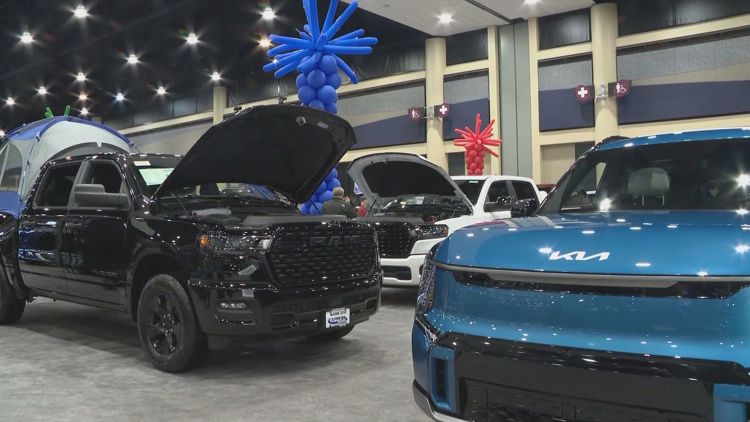CHEEKTOWAGA, N.Y. — Now that President Trump has confirmed again a 25 percent tariff on all automobiles made outside the United States, 2 On Your Side sought some insight from the leader of the group representing Western New York car dealerships.
With local car dealerships actually running commercials suggesting people take advantage of pre-tariff pricing it should be no surprise to hear this from Paul Stasiak who is President of the Niagara Frontier Auto Dealers Association: "Our dealers have seen a certain surge in sales the last I wanna say five days, six days." Stasiak says dealers did have a good inventory of cars on their lots as they usually prepare for a sales bump in February and March following the auto show. RELATED: Here's the chart President Trump displayed during his 'reciprocal' tariffs news conference And then the automakers brought in some extra car products built outside the United States, including from Canadian assembly plants in Ontario.

However, Stasiak noted: "Our dealers concern is if this tariff comes, will they will be able to get sourced enough inventory to get the cars to meet the demands of the public?" Stasiak, who represents sales professionals, does take issue with estimates of economists with the announced 25 percent tariff figure on what some may call pricing anxiety for consumers. "Please understand that $40,000 car will not be $50,000 tomorrow. It will not, and it's a pledge I would make on behalf of my dealers to say don't fear the reaper, OK.
But will it go up maybe a thousand, maybe even $600 or $500." So why won't new car prices really climb if they are built out of country like in Canada or Mexico. Stasiak's opinion after his pledge? Perhaps there is pricing wiggle room in the tariff fine print and manufacturer, dealer discretion? "100 percent of those components in that car are not imported.
It might be 30 percent of those components, it might be 40, even be 60," Stasiak said. Another factor: the car parts for servicing a vehicle where dealers and repair shops make a lot of money as compared to actual vehicle sales. "I think you got more negotiation going on now between the manufacturer and the parts supplier than you do the manufacturer and the dealer," Stasiak said.
Stasiak added that even though they may have stocked up on auto parts as well, dealers might still see some supply chain issues on car parts, also subject to the tariffs, just as they did during the pandemic..
Politics

Sales surge for Western New York car dealers despite questions on Trump tariff policies

There are concerns over the auto parts supply chain with President Trump's announced tariffs.














